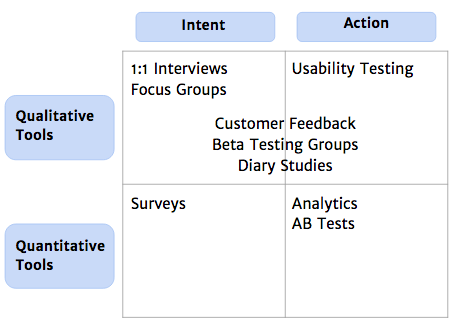
What Does a Product Manager Do?
The Wall Street Journal recently called product manager (PM for short) the MBA graduate?s dream job. (There are many paths into product management, of which the MBA path gets much attention.) I?ve been in product management for almost a decade at companies such as Mint, Chegg, Udacity, and ClassPass, and I?ve had nearly a hundred conversations with MBA near or recent graduates looking to learn about product management. I generally start by asking ?What is a product manager? What do they do?? Most respond that product managers help organizations decide what products to build and help teams deliver those products ? and that?s about as detailed as the students get. Their lack of clarity is fair, that?s why they reach out to me. Yet such confusion is rampant across the product management industry itself.
In 2015 I joined the tech company XO Group to run its Product organization, including twenty-odd people with the title Product Manager. In my first week I asked most PMs the same simple question: ?What is a product manager? What do they do?? and received twenty-odd different answers. Software engineers, accountants, and salespeople don?t share such confusion in their role definitions, why do product managers? One of my first actions as the new team leader was to define a product manager?s role, which I share below and hope can be helpful to you.
For one step further detail, see this updated article on specific Product Manager skills by level.
Product Manager Job Description
Digital product management has emerged as a new function in the past 15 years with the growth of tech companies and transformation of non-tech companies into tech companies, all delivering digital products. In the digital product world of tremendous consumer choice, low switching costs, social sharing, ratings, reviews, and recommendations, making great products matters more than ever to keep a user?s attention. Product management is a key function in delivering high quality digital products; at a 10,000 foot view, product management can support figuring out what products to make, ensuring that those products get made (usually involving digital design and software engineering), and reporting back on how users respond to products ? in short, Strategy, Execution, and User Understanding.
Part of what makes the title Product Manager so confusing is that organizations don?t always want PMs to do all three roles. In some organizations, the strategy/decision making happens without product managers, instead by executives or a different function like sales or marketing, who then direct the rest of the team including PMs. In some companies, a separate group of individuals called project managers take up the day-to-day execution while product managers drive strategy and research. And in some larger organizations, the user research function sits as its own team. I?ve noticed that New York tech companies often keep strategy at the executive level and leave execution/project management, and sometimes user research, to the product managers.
The Product Manager role is further complicated by how much decision-making power the product management function gets in the organization. Within the three responsibilities of strategy, execution, and user understanding, does the product manager give orders, take orders, or something in between? For example, the most empowered product manager might give orders for all three responsibilities. The least empowered product manager might take only take orders while performing project management. (This latter role should have the title Project Manager, but I?ve seen many product manager positions fit this description.) I personally prefer product managers in the middle of this spectrum ? neither boss nor order taker ? as the facilitator ensuring that the group gets to the best answer with all feeling included.
What are the Key Skills of Product Management?
I subscribe to the product management school that empowers PMs with facilitating all three of strategy, execution, and user understanding. In the modern tech company?s workflow, this type of product manager can best help the organization figure out what to build, ensure successful delivery, and incorporate user learning back into the company to further improve the strategy and product. Many have written about this strategic product management role, one of the earliest and most influential being Marty Cagan who helped lead product management at Netscape, AOL, and eBay though the early 2000s. Though the product management function seems to become clearer every year, I still encounter widespread confusion in 2016, even within my own company. I articulate product management as a series of six core skills that tie to the three major roles of product management: Role of Strategy = Skill of Strategic ThinkingRole of Execution = Skills of Sufficient Technicals, Collaboration, Communication, and Detail OrientationRole of User Understanding = Skill of User Science & Empathy.
Strategy:
1. Strategic Thinking:
Great PMs help teams find and prioritize high potential ideas to work on.
Product managers often take on the role of helping their teams make good strategic decisions, such as finding options and then prioritizing options. Valuable ideas come from many places ? individual inspiration, classical strategy, competitive analysis, offline analogs, and more ? though teams require rigor to find ideas from all sources. Teams can struggle even more choosing amongst those options without a solid framework. For example, I?ve sat with several different teams trying to choose between creating an app, adding a B2B offering, going international, or just making the core product work better. How to decide? If teams fail to solve tough questions, then either the team may work on unimportant problems and fail, or be told what to do by someone else, reducing the team?s autonomy and morale.
Execution:
2. Sufficient Technicals:
Great PMs thrive in their and their partners? technical environments.
Product managers need to be as technically proficient as makes sense for the product and team, typically so the PM can better understand the context and possibilities of the product space. For example, working on e-commerce requires understanding payment technologies to make good decisions. Today many product managers need to understand data thinking and use tools such as Google Analytics, Mixpanel, Tableau, Optimizely, etc. that require a base level of technical thinking or training.
Additionally, product managers can be better partners to, and command more respect from, engineering and design partners by understanding the technical limitations of their respective worlds, such how product ideas may impact memory usage or processing time for engineers and pattern libraries and usability rules for designers. Product managers who fail to understand their partners? world risk losing their partners? trust.
3. Collaboration:
Great PMs help their teams perform at a high level internally and across the organization.
Product managers rely on working well through others to help their teams succeed. (Note: this trait is often considered ?leadership.?) Often a product manager will work on a team with one designer and three to six engineers. High performing teams can be defined many ways, two of my favorites being Tuckman?s Forming-Storming-Norming-Performing model and Lencioni?s Five Dysfunctions model, but most definitions require an environment of shared goals, expectations, trust, and understanding. Successful product managers exhibit leadership and emotional intelligence to help their teams work well together and achieve a high performing state. If the designer and the engineer struggle to work well together, the product manager should feel accountable for fixing the challenge somehow, to create a successful team environment.
Similarly, teams often collaborate with other teams, or with external partners, and successful product managers help teams work well with others too. One specific valuable collaborative skill is the ability to identify and defuse or avoid unnecessary conflict within and across groups (typically around ownership or dependencies), while proactively engaging in conflict of ideas (that helps teams get to better answers).
This Product Management article on negotiation provides a deep dive on this important piece of collaboration.
4. Communication:
Great PMs ensure that others successfully understand what they need to know.
Product managers often serve to keep internal and external team members up-to-date, both digitally (email, chat, wiki, etc.) and physically (meetings, presentations). Good communication effectively shares the information that an organization needs to function well. When different parts of an organization don?t understand each other, important information is lost, time sensitive execution suffers mistakes, and both performance and morale sink. Poor communication, resulting in mismatched expectations and deliverables, is often at fault at surprising and derailing an organization that is otherwise moving in a sound direction.
This Product Management article on product release blogs provides a concrete tool for strong cross-organization communication.
5. Detail Orientation:
Great PMs help teams achieve high velocity and quality by paying attention to details that matter.
Product managers with good detail orientation help teams continuously improve by finding missing important details and fixing issues early. This sense of ownership and quality control helps teams stay outcome oriented (i.e. get high quality results) rather than output oriented (i.e. release something on time.) For example, the longer a team takes to fix an important bug, the more expensive it is do the fix ? usually finding and fixing issues is cheaper in design phase than in engineering phase, cheaper in engineering planning phase than in engineering testing phase, cheaper before launch than after launch. Less tenured product managers often make their biggest mistakes forgetting important details throughout the process that have big consequences (often resulting in product failure) such as considering all possible ways their changes touch the overall product, while thoughtful PMs generally learn when mistakes tend to happen and adjust how they work.
User Understanding:
6. User Science & Empathy:
Great PMs employ user science to identify high potential user problems and successfully evaluate a product?s user impact.
Ultimately, products succeed by solving users? problems. While this phrase sounds simple, humans are very complex. Building great products is HARD, and organizations rarely build new products that deeply impact their users. The better that product managers, teams, and organizations understand their users, the more likely new products will solve user problems.
Further, understanding and spending time with users is often the most rewarding part of any role, and especially of being a product manager, by feeling connecting to the purpose of your company and feeling a personal impact on others. Ask a product manager what their favorite part of their job is, you?ll often here ?talking to users? or ?seeing the look on a user?s face when she uses my product.?
Understanding users begins with user empathy, being able to feel what a target user feels. This skill helps a product manager begin to predict how a user may react to a new product. By talking to a few target users, great PMs can quickly transform their mindsets to that of any user type ? young or old, female or male, etc. ? and begin to feel like those users do. Empathy can help teams make accurate decisions with rough precision.
User science is the rigorous scientific field of analyzing and measuring users to understand them accurately with relatively high precision. Researchers can measure user intent (what they think or say they will do) and user action (what they actually do) ? and intent rarely matches action. Below are some examples of user science tools:

Of the six core product manager skills, user science is the only one that needs to be studied and developed explicitly, like any scientific skill.
This Product Management article on user science provides a deep dive on the powerful skill.
How to Become a Product Manager
People (not just MBAs) often ask me how to get into product management, and I reference the six skills above. (For a detailed skill list per level, see this article.) The first five skills are found and can be developed and demonstrated in many different roles ? marketing, engineering, business analysis, and general management (including entrepreneurship) to name a few. Great project management professionals explicitly develop the four execution skills. User science is the hardest skill to develop without being a product manager, though increasingly other professions use or specialize in user science, and user science educational programs are growing. (Early career product managers aren?t expected to know user science, but should show user empathy and potential for learning the science.)
In my first few weeks at XO Group, I shared this perspective on the product manager role with the team. We?ve since incorporated these six skills into XO Group?s product management personal development plans, regular ?product school? discussions, level expectations, semi-annual evaluations, and hiring/interviewing plans. For those of you interviewing to be product managers at any organization, I encourage you to ask the interviewer how they view their product managers and match the answer against your goals. Do their PMs help drive team strategy or only project management? Do their PMs perform user science? Are their PMs order takers, givers, or facilitators?
Many companies get strategic product management right ? Intuit, eBay, LinkedIn, Amazon, Expedia (and I hope XO Group!) to name a few ? and many have a way to go to support product managers having high impact on their users. What happens when companies build great products that meet their users? needs? Good things. Ask a product manager her favorite metric, and she?ll probably say Net Promoter Score (NPS), which measures a user?s likelihood of recommending a product and is often used as a customer satisfaction score. Companies with high NPS have been shown to outperform their peers. Great product managers help create stronger strategy, stronger execution, and stronger user understanding, all of which strengthens companies across their key metrics. Of these three, user insight is my favorite ? when PMs especially understand and evangelize their users, the entire company?s sense of purpose and meaning grows, and user and company alike benefit. Getting product management right matters ? so for companies and PMs alike ? keep your product manager expectations for strategic thinking, execution, and user understanding high!


